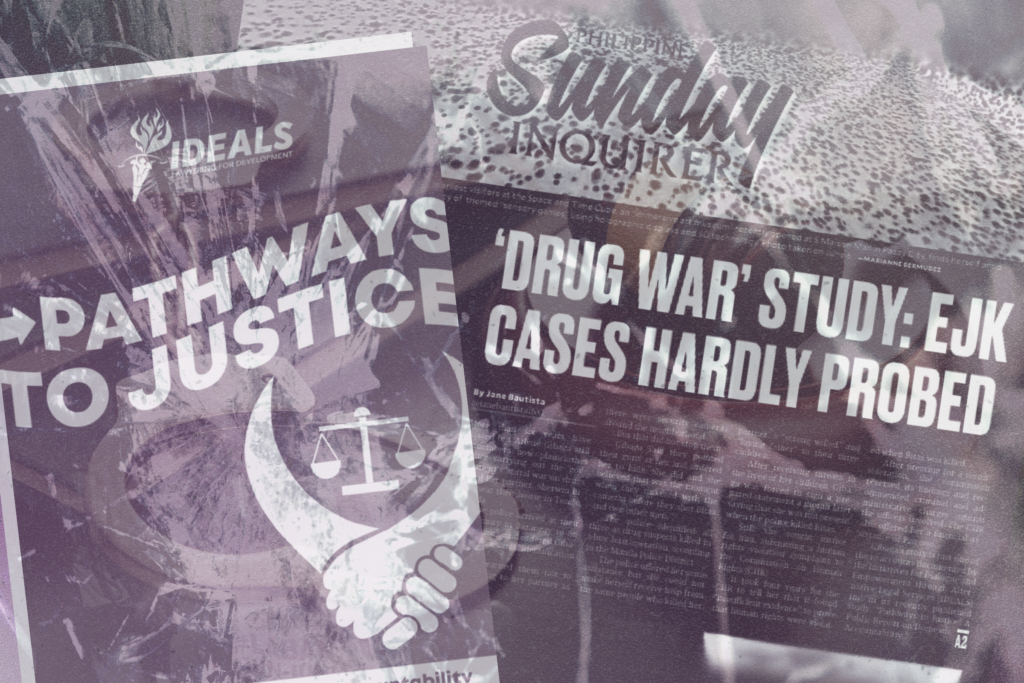Inquirer spotlights NGO study on failure of government to investigate drug- war related EJKs

CHEERS TO the Philippine Daily Inquirer for calling attention to the failure of accountability for extrajudicial killing (EJK) cases related to the drug war pursued by Rodrigo Duterte during his term as president.
On June 9, the Inquirer published “‘Drug war’ study: EJK cases hardly probed,” which shared the research findings of Initiatives for Dialogue and Empowerment through Alternative Legal Services (IDEALS) Inc., a non-profit organization. IDEALS investigated 97 cases of alleged extra-judicial killings (EJKs), featuring in-depth interviews with 10 surviving families who took their case to different agencies. The article said IDEALS gathered its data from August to September in 2023.
The Inquirer was the only news organization to report on the IDEALS study.
No further probes
Written by Jane Bautista, the story led with the tragedy suffered by Arlene Gibaga, whose partner Sherwin Bitas was killed by the police in a buy-bust operation in 2017. Gibaga said the police ordered her to hide before shooting Bitas and two other men. She also believed the police tampered with security cameras in the area.
Bautista reviewed the experiences of the different families which led them all to agree that the government was “lacking in sincere effort” to address the killings, and that the “slow court system” hindered their quest for justice.
The article included the telling numbers presented by the study: 92 out of the 97 cases examined were either never investigated or were set aside after the initial routine inquiries by the police; and that in general, police did not undertake investigations to uncover the truth – which raised questions about the government’s intention to prosecute these cases.
Where is Duterte?
The reluctance to investigate the killings was also shared by Congress. The Inquirer report referred to the hearings conducted by the House of Representatives which never called the former president for questioning, describing Duterte’s former executive secretary Salvador Medialdea “laughing off the prospect.”
Furthermore, Bautista cited the observation made by Atty. Jose Manuel “Chel” Diokno in a June 5 House hearing that the Office of the President itself had reported that 20,000 were killed from July 2016 to November 2017 — a figure much higher than the official count of over 6,000 deaths resulting from the entire course of Duterte’s drug war.
The IDEALS study challenges the government claim that the country’s justice system is working. It also validates the pressure exerted by victims’ families to seek justice elsewhere.
The Inquirer stands out for giving the study the prominence it deserves, casting a shadow on other media that seem satisfied with quoting official statements about how the justice system in the country works. Such reports perpetuate the narrative that all is well on the human rights front. The Marcos administration cannot be let off easily, even as he is cheered by some quarters for the lower numbers of drug-related deaths.
Marcos Jr. ran on Duterte’s lead. He and his administration share the burden of accountability, a fact that media should not forget.
Leave a Reply